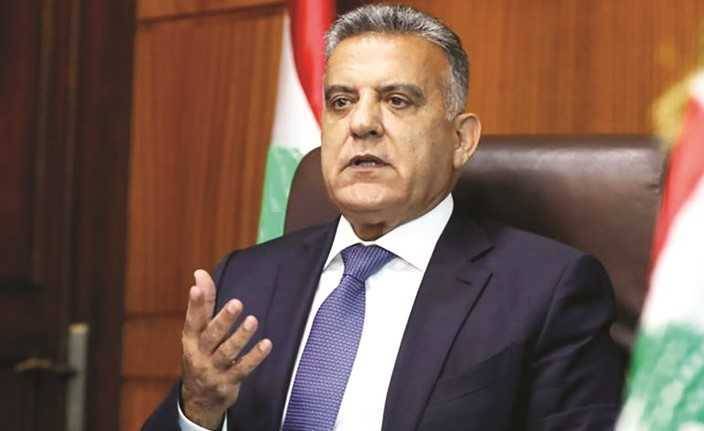The escalation of confrontations between Hezbollah and the Israeli army in recent days has raised fears of the Gaza war spilling over into Lebanon. This concern grew particularly after Hezbollah targeted an Israeli drone with a surface-to-air missile on the Lebanese-Israeli border, followed by an announcement from the Israeli army about intercepting a missile fired from Lebanese territory at an Israeli drone.
The Washington Post observed that the "secondary conflict" along the Lebanese-Israeli border has been gradually increasing in scale and intensity alongside the Gaza war. Notably, on Saturday, Israeli aircraft targeted an aluminum factory in the Lebanese town of Nabatieh, located 12 miles north of the border, which surpasses the traditional area where both sides consider retaliatory fire acceptable.
According to the newspaper, both parties have begun employing more lethal weapons. Israel is now regularly dispatching fighter jets to strike Hezbollah targets, while Hezbollah is deploying drones and heavy missiles.
The paper reported that almost daily over the past six weeks, Israel has attacked Lebanon, and Hezbollah has retaliated against Israel. This pattern, which began as an act of vengeance, has now transformed into a continuous exchange of fire. Almost invariably, the strikes occur 4 to 5 miles from the border on both sides, a deliberate calibration aimed at containing violence and avoiding a significantly more destructive war.
However, the paper notes that Israeli officials are currently escalating their rhetoric. Last week, Israeli army spokesman Daniel Hagari stated, "Lebanese citizens will bear the cost of this recklessness and Hezbollah's decision to be the defender of Hamas." The Israeli army has operational plans to alter the security situation in the north, according to the report.
The newspaper quoted Adiba Finash, 65, one of only 12 residents left in the border village of Deheira, who noted that in the early weeks of conflict, Israel only bombed in the evening. She told the Washington Post during her visit to Tyre for supplies, "Now the bombings stretch from morning until night, increasing day by day."
While these sporadic escalations have not yet ignited the feared blaze, each violation of the unspoken agreement between Hezbollah and Israel brings them closer to the brink. The last war in 2006 resulted in the deaths of over 1,200 individuals in Lebanon and 165 in Israel, leaving vast areas of the besieged country in ruins. Both sides have warned that any large-scale conflict now would be far more devastating, emphasizing their reluctance to engage in such a war.
The newspaper cited Andrea Tenenti, spokesperson for the United Nations Interim Force in Lebanon, noting that as weeks progress and rockets fly, the risk increases that either side could miscalculate or overstep boundaries. He mentioned, "Anything one side does, the other could decide has crossed a line and allows for a larger battle."
In the old city of Tyre, an attractive coastal town filled with fishermen and cobbled streets and markets, fears are mounting concerning a spread of violence to the rest of Lebanon. The past 17 years have granted the south its longest period of peace in five decades, allowing Tyre to thrive and attracting tourists to its beaches, bars, and luxury hotels. However, the Washington Post highlighted that bars and hotels are now empty, with few customers in the restaurants.
Arab and Western diplomats told the newspaper that intense behind-the-scenes discussions are taking place to prevent a recurrence of the events of 2006, focusing on Hezbollah's calculations and the words of Hassan Nasrallah, the powerful leader of the Shiite party and armed group with longstanding ties to Iran.
The National Interest magazine reported that the United States is attempting to mediate between both sides to avert this nightmarish scenario, as Washington aims to reduce the likelihood of a regional war, utilizing all its leverage to achieve this goal.
The magazine noted that people in Lebanon are trying to carry on with their daily lives amidst a persistent state of fear as the situation in the southern border region escalates. The ongoing fighting between Hezbollah and Israel keeps everyone on high alert for a large-scale war. The possibility of Israeli aircraft bombarding Beirut and precision-guided Hezbollah missiles striking Tel Aviv seems unavoidable.
Some in Lebanon have suggested ways to avoid a full-blown confrontation with Israel. General Abbas Ibrahim, who has served as the head of Lebanon's General Security Directorate, spoke with the National Interest about the current situation, saying, "The United States is making official and unofficial contacts with individuals they believe can make a difference with Hezbollah, as the Americans are trying to reduce tensions at the border."
According to the magazine, General Ibrahim has historically played the role of mediator between Hezbollah and the U.S. whenever they needed to communicate. However, he firmly denied any direct discussions between them regarding the current conflict, stating, "I can say that Hezbollah is not engaged in direct talks with the United States. They are focusing all their efforts on Palestine. There have been numerous attempts to build this channel between Hezbollah and the U.S., but they have proven unsuccessful so far."
Ibrahim added, "The best guarantee against a war invading Lebanon is for the international community to stop the Israeli assault on Gaza now."




